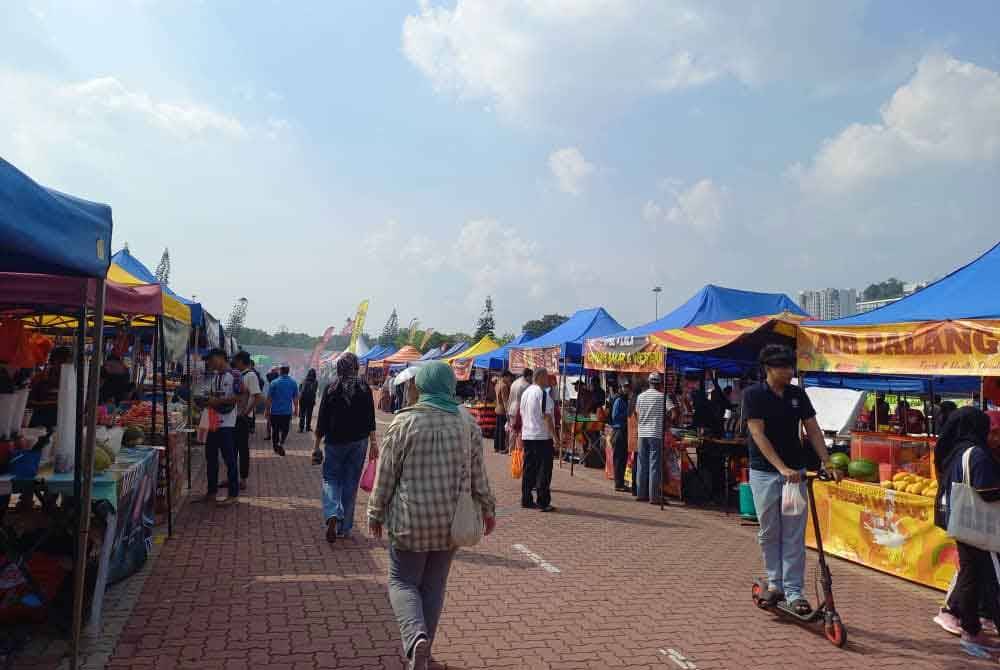‘Material prices are up, how are we going to maintain last year’s price?’ – Bazaar trader
"The cost of raw materials needed to prepare dishes had increased by 50 per cent compared to last year."
ROSKHOIRAH YAHYA, QURRATUL’AINA QUDDUS, SITI ZUBAIDAH ZAKARAYA, TUAN BUQHAIRAH TUAN MUHAMAD ADNAN, NORHASPIDA YATIM, ROSILAWATI ROSEDI dan NOOR AINON MOHAMED YUSOF
SHAH ALAM - Most Ramadan bazaar traders are forced to raise selling prices due to the increased cost of raw materials.
A survey by Sinar Harian found that most of them had to increase food prices by around 50 cents to RM1 to cover the increase in costs.
Curry puff and nasi lemak seller Julina Umno, 44, said the cost of raw materials needed to prepare dishes had increased by 50 per cent compared to last year.
She said compared to last year, she used to spend RM300 in capital every day, but now it has doubled to RM600.
"Last year I sold curry puff at RM5 for seven pieces. Now I have to sell one curry puff for RM1, while nasi lemak goes from RM7 to RM8 per pack.
"All raw material prices have gone up, such as spring roll skin, cabbage, dried chillies, flour, and anchovies. So how are we going to maintain the original price?
"We traders have to do this for the sake of business sustainability. Otherwise, it is just tiring and there is no profit," she said when met at the Ramadan bazaar in Section 13 here on Wednesday.
Nasi kerabu seller, Norazlina Mat Sah, 48, said the action of traders raising prices was not done arbitrarily.
She said many factors were taken into account such as the cost of raw materials, site rental, and salary payments before deciding to raise selling prices.
"We are not intentionally raising meal prices, but we have to do it after considering everything. If prices remain the same, it is as if we are working without a salary.
"I will take salted eggs as an example, the cost for one is RM3. So, I cannot sell it for RM1.50 each. Where is the profit? I still need to pay workers' salaries,” she said.
Meanwhile, in Sungai Petani, Kedah, a survey on the prices of six iftar meal menus at several locations in the state found that five of them remained the same as last year.
The prices that remained unchanged were Roti John sold for RM7, sugarcane juice (RM3), tomato rice (RM6), a whole roasted chicken (RM28), and coconut milk pudding (RM3), while martabak, which was sold at RM3.50 last year, is now up to RM5.
In Jempol, Negeri Sembilan, most roti john sellers at several Ramadan bazaars in this district have maintained prices like last year, around RM7 and RM8.
Download Sinar Daily application.Click Here!














